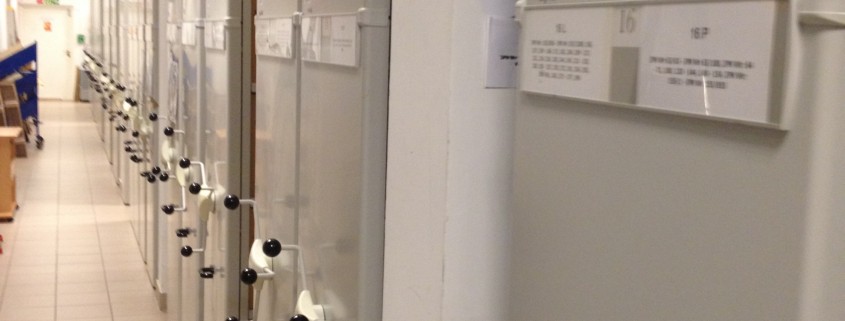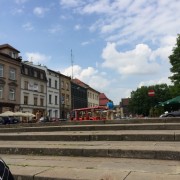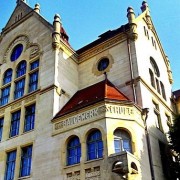Institute of National Remembrance
The years of 1944-1945 are often falsely believed to be the beginning of a period of liberation, sovereignty, and restoration in Poland. On the contrary, post-war Poland fell into the grasp of Communism from 1944-1989. This period was defined by political, social, and religious oppression, intimidation, and unjustified murder, veiled behind the Iron Curtain.
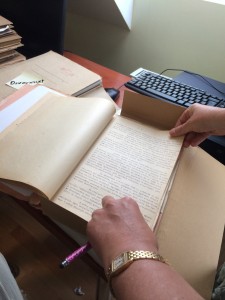 In its effort to maintain control, the Communist regime meticulously investigated and organized information on its citizens, with the main goal of answering “who’s who”. The government recruited citizens through various means to serve as agents of information on others. Anyone who was accused by the regime to have committed an offense or had ties to someone that did could fall victim to an investigation and further prosecutorial actions. Many of these victims were falsely accused.
In its effort to maintain control, the Communist regime meticulously investigated and organized information on its citizens, with the main goal of answering “who’s who”. The government recruited citizens through various means to serve as agents of information on others. Anyone who was accused by the regime to have committed an offense or had ties to someone that did could fall victim to an investigation and further prosecutorial actions. Many of these victims were falsely accused.
Communism fell in Poland in the ’80s, and in 1989 Poland had its first democratic elections. The National Institute of Remembrance was established in 2000 by the Polish Parliament due to the country’s need to deal with the Communist past. The Institute’s duties include the preservation and continued investigation of the archives established and maintained by the Secret Police (only about a third of documents were recovered).
Today, the Institute in Wroclaw is comprised of four departments – two prosecutorial departments (one focused on lustration and the other devoted to the prosecution of Soviet criminals), an administration department, and most importantly the research department. This last department is involved in cataloging and researching the Secret Police files. In cataloging these documents, researchers are able to identify co-conspirators with the Secret Police. Those parties interested are able to look up their ancestors who were either working for or victims of the Secret Police.
As a group of students visiting the Institute, it was staggering for us to see the size of the files that were kept on just one person. We were shown the archives that reside in the basement of the Institute (as pictured above), and the sheer magnitude of the files was overwhelming. Three members of our group have family in Poland, and they were wondering if their ancestors have their own files there. It is more than likely that they do, although they would have to send in a request to Institutes in their native cities to find out.
It was also interesting to hear Professor Suleja, our host, speak about how people were spied on and the kind of notes that were taken on their daily lives. To think that your closest friend or relative, or a neighbor who holds a grudge against you, could be cooperating with the Secret Police is telling of the atmosphere of suspicion and paranoia that must have pervaded post-WWII Poland.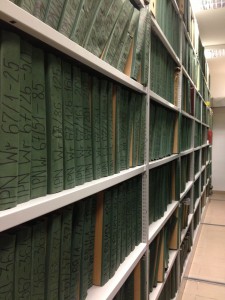
For those who are interested in finding out whether their ancestors had connections to the Secret Police in Poland (either as co-conspirators or victims), the process in retrieving the relevant files is as follows:
1. Send a letter to the branch of the Institute in the city in which your ancestor resided. You must be within three generations of a direct lineage (child, grandchild, or great-grandchild). Provide as much information as available in regards to the ancestor (birthdate, parents’ names etc.)
2. The Institute will search for files and respond.
3. You may then travel to the branch’s office to personally look at the files of interest.
This Institute remains an important site of memory because as the head of the Institute, Professor Suleja said, “pencils don’t speak, documents do.” The files preserved by the Institute unveil a period that was heavily guarded by the Iron Curtain, and thus, allows us to take a look into the lives of people that were hidden from the rest of the world.
*Thank you to Professor Wlodzimierz Suleja of the Institute of National Remembrance for providing all information found in this blog entry.
Postal Address:
Institute of National Remembrance
ul. Woloska 7
02-675 Warsaw
Poland
By: Karolina Wadolowska, Lucas Galbier, Hadeel Al Haddadeh, and Allison Kisielis

